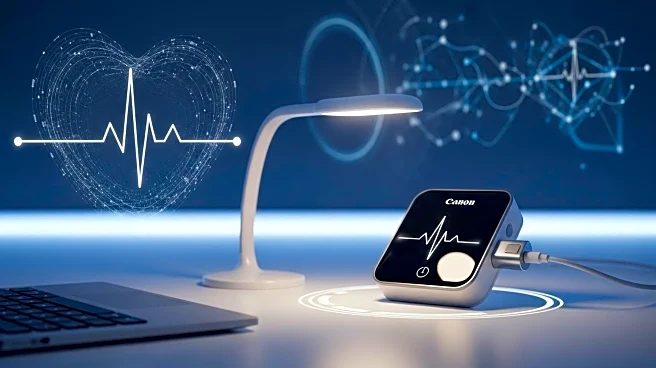What's Happening?
The healthcare industry is witnessing a shift towards independent remote monitoring platforms for managing chronic cardiac conditions. Traditionally, remote monitoring has been dominated by proprietary systems tied to specific device manufacturers, leading to fragmented data and inefficiencies in patient care. However, vendor-neutral platforms are emerging, offering integration across different cardiac device brands. These systems streamline workflows and enhance clinical decision-making by consolidating data into a unified platform. A recent study, EVIDENCE-RM, demonstrated that patients monitored through an independent platform experienced significant reductions in mortality and hospital admissions compared to those using traditional systems. This approach allows for earlier interventions and improved patient outcomes, particularly for those with implantable cardioverter-defibrillators and cardiac resynchronization therapy devices.
Why It's Important?
The adoption of independent remote monitoring platforms is crucial for advancing cardiac care. By providing a standardized and interoperable system, these platforms reduce the complexity and cognitive load on clinicians, allowing them to focus on patient care rather than managing disparate systems. The ability to integrate data across multiple vendors enhances the accuracy and efficiency of clinical interventions, leading to better patient outcomes. This shift supports the broader healthcare trend towards value-based, patient-centered care, offering equitable access to high-quality monitoring and insights regardless of geographic location or resource availability.
Beyond the Headlines
The move towards independent remote monitoring platforms has deeper implications for healthcare delivery. It represents a strategic shift towards precision medicine, where data-driven insights enable personalized care plans tailored to individual patient needs. By leveraging AI-supported algorithms, these platforms can detect subtle patterns of deterioration and prioritize alerts based on clinical relevance, enhancing the responsiveness and accuracy of interventions. This approach not only improves patient outcomes but also addresses clinician burnout by streamlining workflows and reducing administrative burdens. As healthcare becomes increasingly digital, these platforms offer a scalable solution for managing chronic conditions across diverse populations.










